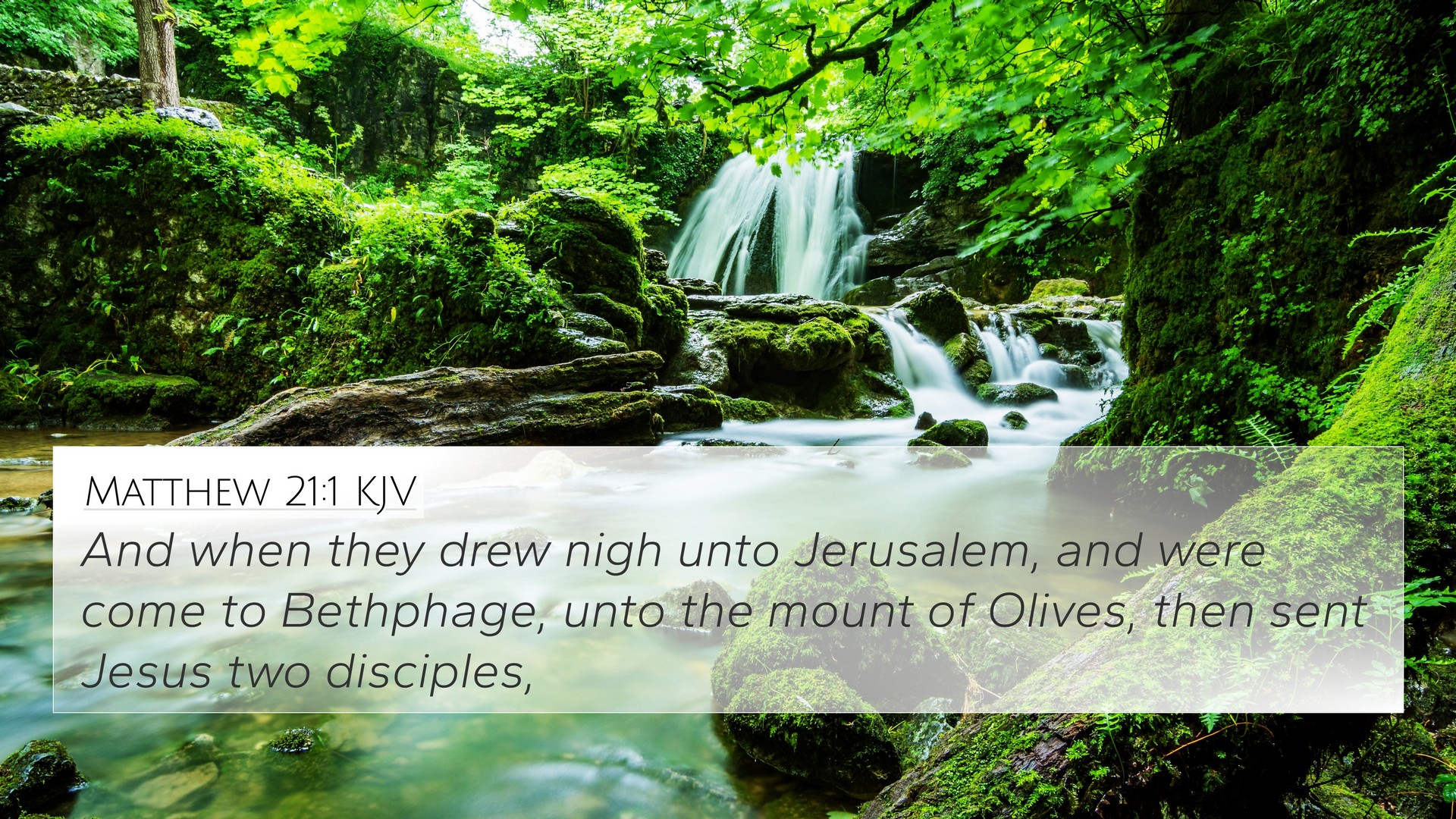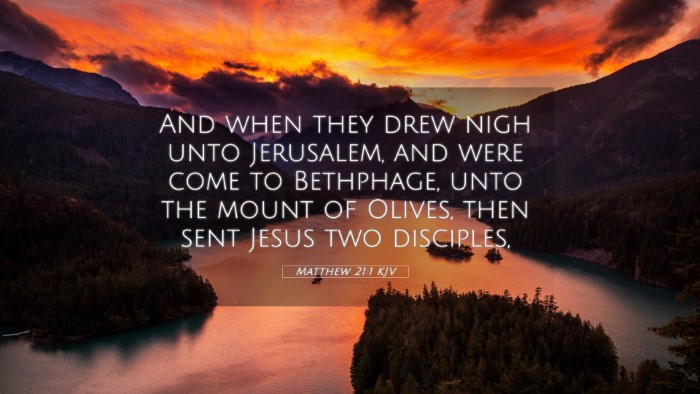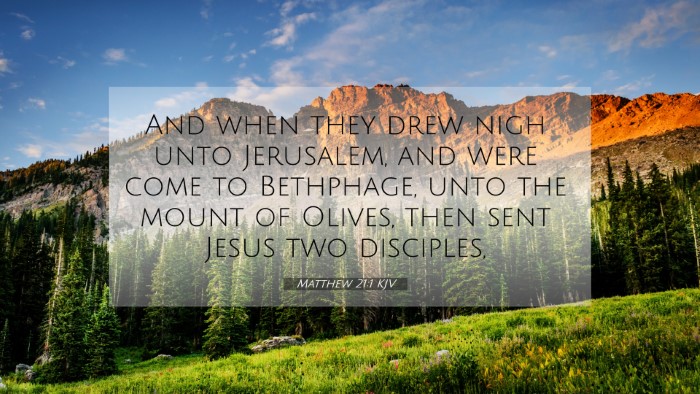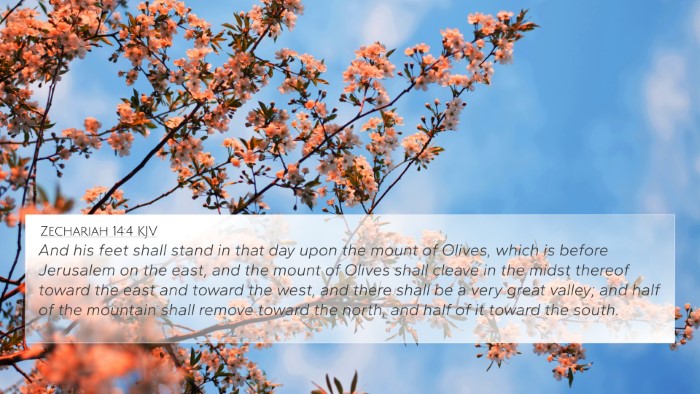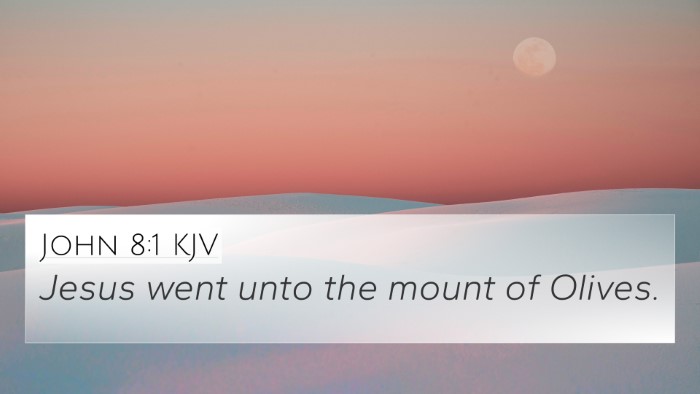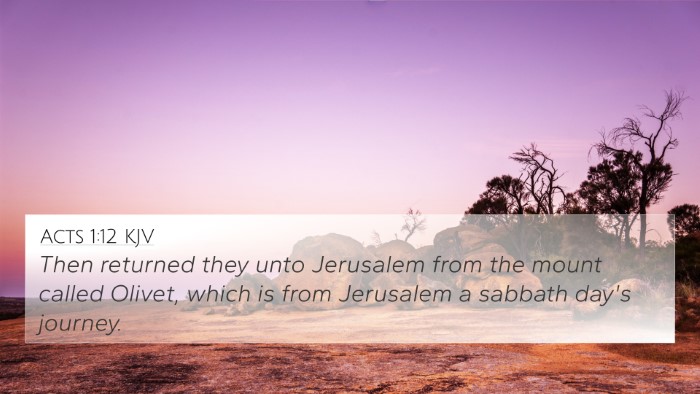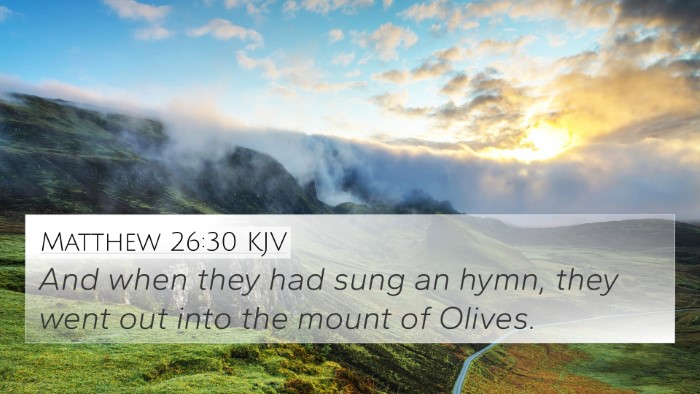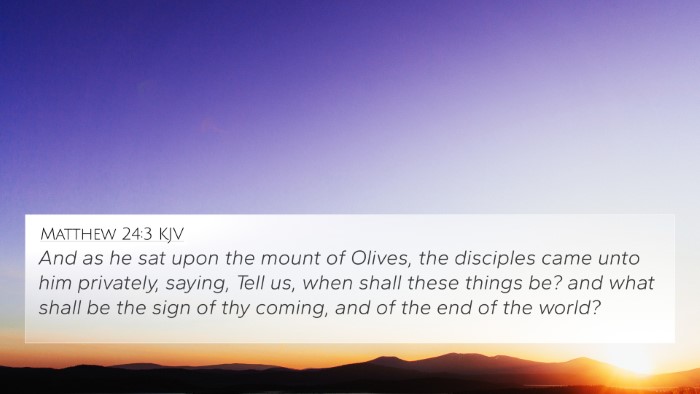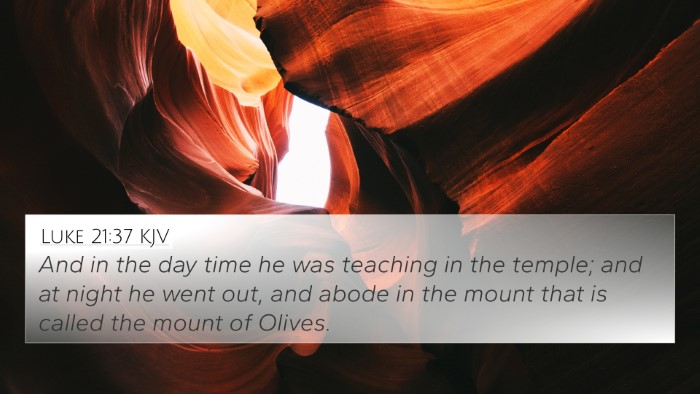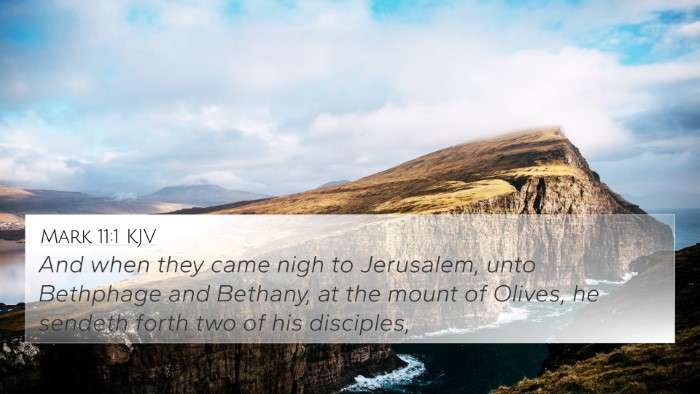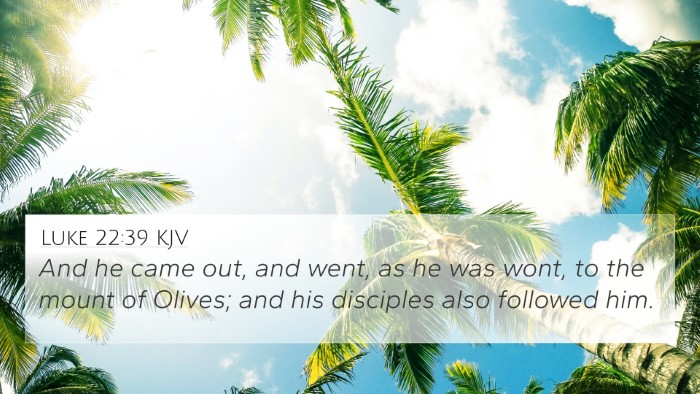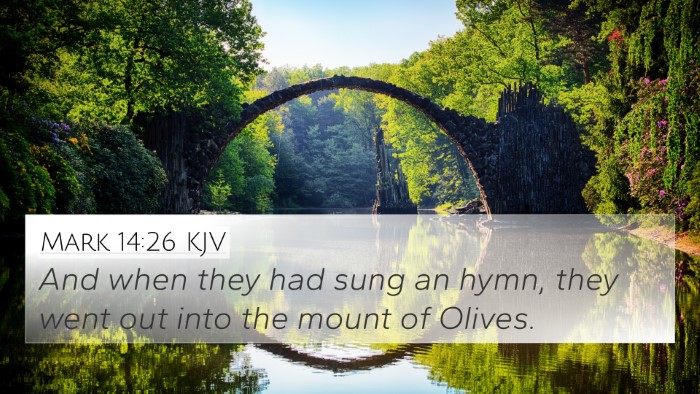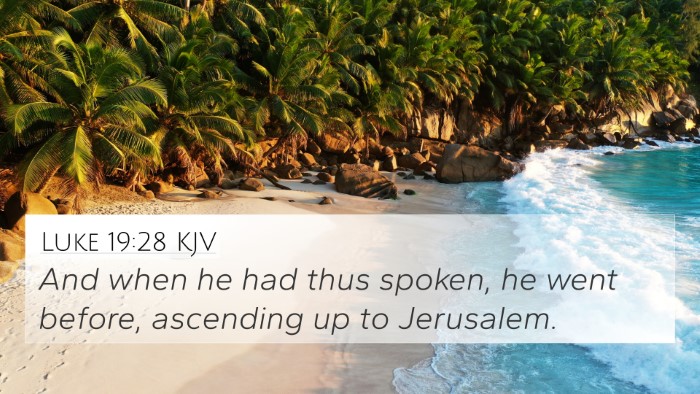Understanding Matthew 21:1
Matthew 21:1 states, "And when they drew nigh unto Jerusalem, and were come to Bethphage, unto the mount of Olives, then sent Jesus two disciples." This verse introduces a significant moment in the New Testament, marking the approach to Jerusalem leading up to the Passion of Christ. Below we explore the meaning of this scripture through various public domain commentaries, offering insights into its theological implications and connections.
Contextual Summary
In this passage, Jesus is nearing the end of His earthly ministry. The journey to Jerusalem is not just a geographical move but is laden with prophetic significance. The mention of 'Bethphage' and 'the mount of Olives' highlights Jesus' fulfillment of Old Testament prophecies regarding the coming of the Messiah.
Commentary Insights
-
Matthew Henry's Commentary:
Matthew Henry emphasizes the significance of Jesus' deliberate choice to approach Jerusalem. He notes that this journey is characterized by humility and purpose. Henry suggests that Jesus’ choice to send His disciples ahead to prepare the way signifies His authority and the prophetic fulfillment concerning His entry into Jerusalem as a king.
-
Albert Barnes' Commentary:
According to Barnes, the location of Bethphage, at the foot of the Mount of Olives, is essential because it is a place of rich biblical significance. He points to the prophetic actions taking place—Jesus is fulfilling the prophecies speaking of the King entering Jerusalem in humility, a theme echoed in Zechariah 9:9.
-
Adam Clarke's Commentary:
Clarke elaborates on the geographical and spiritual implications of this passage. He highlights that drawing near to Jerusalem not only represents a physical journey but signifies Jesus’ approach to the climax of His mission. He mentions that Bethphage means "house of unripe figs," symbolizing the coming judgment of Israel and the necessity of recognizing the time of visitation.
Thematic Connections
This verse can be cross-referenced with various other biblical texts to enrich its understanding:
- Zechariah 9:9: "Rejoice greatly, O daughter of Zion; shout, O daughter of Jerusalem: behold, thy King cometh unto thee." This connection emphasizes the prophetic fulfillment of Jesus as King entering Jerusalem.
- Matthew 20:17-19: These verses highlight Jesus’ predictions of His suffering and death, setting the stage for the events in Matthew 21.
- John 12:12-15: Here, John accounts for the triumphal entry, providing additional context to the significance of Jesus’ approach.
- Luke 19:29-38: This parallel account in Luke corroborates Matthew’s narrative and elaborates on the crowd’s response during the entry.
- Isaiah 62:11: The prophetic declaration of salvation which aligns with Jesus’ mission displayed in His actions as He approaches Jerusalem.
- Matthew 21:4-5: The fulfillment of the prophecy regarding the mode of Jesus’ entry on a donkey signifies peace and humility.
- Zacharias 9:10: This continues the theme of peace associated with the Messiah's entry, linking to the notion of Jesus’ kingdom.
Further Reflections
This verse encapsulates a pivotal moment in Christian theology—the transition from the ministry of Christ to the Passion. The approach to Jerusalem is rich with symbolism and foreshadowing of the events that will unfold. Understanding this verse within the broader narrative of Scripture enriches the believer's faith and provides a cornerstone for studying the life of Jesus.
By utilizing tools for Bible cross-referencing, such as a Bible concordance or a cross-reference Bible study, one may delve deeper into the connections between Bible verses, further enhancing the understanding of specific themes across both the Old and New Testaments.
Conclusion
In conclusion, Matthew 21:1 serves as a powerful entry point into the study of Jesus' final days on earth. The connections between this verse and others elucidate the continuity of Scripture, revealing the intricate tapestry of prophetic fulfillment and divine purpose that threads through the Bible. As believers and scholars engage with these texts, the practice of cross-referencing Biblical texts provides clarity, context, and a deeper appreciation for the inspired Word of God.
SEO Keywords Usage
This work utilizes keywords such as Bible verse cross-references, connections between Bible verses, and thematic Bible verse connections to facilitate discovery and enhance understanding among those seeking deeper insights into biblical texts.
